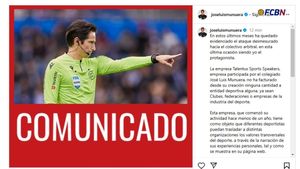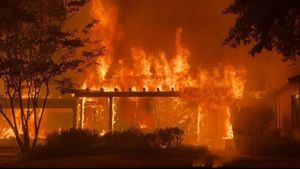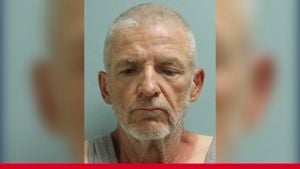OTTAWA — Mark Carney, the presumed front-runner for the Liberal leadership, indicated on Thursday he is open to the possibility of calling for a general election should he attain the party leadership on March 9. Speaking at a press conference in Vancouver, Carney, who aims to replace Justin Trudeau, noted the need for decisive action as Canada faces the looming threat of punitive tariffs from the United States.
"If Parliament needs to be recalled for certain reasons, it will be," Carney stated, hinting at the urgency of the circumstances should he be elected. His comment came as discussions intensify around the potential repercussions of U.S. President Trump's agenda, which may include hefty tariffs on Canadian imports like aluminum and steel. Notably, the Canadian Parliament is scheduled to return on March 24, shortly after the highly anticipated leadership vote among Liberals.
Carney acknowledged the fluid political climate and the potential necessity of garnering voter support to navigate the trade negotiations with the U.S. "If it makes sense to get a strong mandate at this point, that's what will follow," he affirmed.
Recent public opinion polls suggest the Liberals are experiencing momentum, with expectations rising about the possibility of early elections. Jennifer Howard, the NDP’s national campaign director, circulated a memo urging preparedness for elections shortly after Carney's leadership selection. "It is becoming more and more likely... he intends on calling an election shortly after becoming Liberal leader," Howard stated, highlighting the urgency for party candidates to ready their campaigns.
Meanwhile, the political opposition to Carney's potential election call is heating up. Pierre Poilievre, the Conservative leader, along with Howard, have both called for Parliament to convene sooner than scheduled, aiming to address the tariff threats imposed by the Trump administration. Poilievre even declared, "Carney has spent his campaign making billions of dollars in spending commitments, offering little detail on how he plans to pay for anything."
The NDP leader, Jagmeet Singh, remains open to collaboration with Carney and stressed the importance of proposing supportive legislation for Canadians who might be adversely affected by the tariff hurdles. Even so, Singh has made clear the opposition parties are gearing up for immediate action should there be indications of election calls by Carney following the leadership contest.
Adding to the complexity of the current political scenario, Carney has been engaging with members of the Liberal constituency, presenting his policy proposals, which include tax cuts for middle-class families and balancing the federal budget within three years. "We need a government to spend less, but get the country to invest more," he articulated during one of his campaign rallies focused on economic revitalization.
Carney's economic philosophy also touches on reducing reliance on the United States, particularly under the current administration's antagonism. He has vowed to accelerate major projects aimed at strengthening Canada's economy, stating, "It is time to build, and we should do it now to strengthen our negotiating position as well."
Despite his optimism, criticisms persist. Some factions, particularly conservatives, have highlighted Carney's past role overseeing Canada's economic strategy, questioning the viability of his proposed fiscal changes. A spokesperson for the Carney campaign has largely avoided questions about immediate election plans but emphasized his focus on reshaping Canadian economic strategy.
Public sentiment seems to reflect increased confidence toward Carney's leadership, with some polls indicating he is viewed as the most qualified leader capable of negotiating with the U.S. With the political stakes high, the impending Liberal leadership vote on March 9 holds significant ramifications for Canada's political climate and upcoming legislative sessions.
Overall, Carney's viability as the next Liberal leader—and potentially the prime minister—remains interlinked with the volatile political environment, trade negotiations, and the actions of opposition parties. The notion of early elections looms large amid the uncertainty, with stakeholders both inside and outside Parliament preparing for how the next phase of Canadian governance may take shape.



